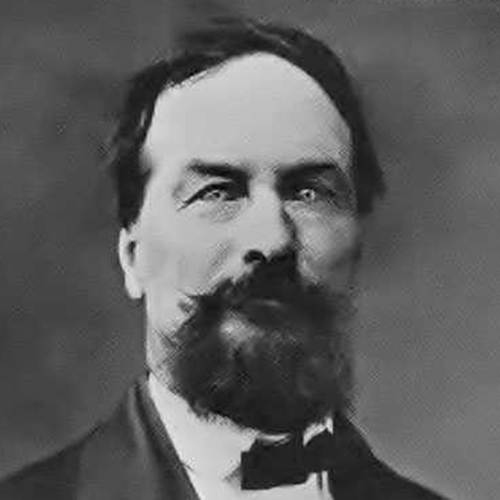Wild Bill Hickman
It was an awkward phone call. My future father-in-law was on the line with a question, “are you related to Wild Bill?”
Er, ah. The question was not at all expected. “Yes,” I answered. “He was my great-great-grandfather.” The answer could be in no way equivocal.
My mind was reeling a bit. How could my future father-in-law have come across a reference to Wild Bill? After all, the two men were separated by a century, a language, and half a world.
The phone call took place in 1997 and by then the internet and search engines were already pervasive. Wild Bill already had a few web sites dedicated to him.
Why? Well, he led a colorful, if not controversial, life.
He also wrote a book about it. Or the book was written by a ghost writer, or whatever. Many of the facts about his life seem to attract a lot of disagreement and second-guessing by his descendants. Some of the discord seems to have religious motivation or a desire to acquit some guilt or shame, true or imagined. The question of why and by whom the book was written is not a settled fact.
“Brigham’s Destroying Angel, Being the Life, Confession and Startling Disclosures of the Notorious Bill Hickman, The Danite Chief of Utah” appeared in 1872 and has been republished several times since.
Chapter two of the book is an autobiographical sketch of Wild Bill’s childhood and early life. He lived in frontier lands of Kentucky and Missouri as a boy, hunting plentiful buffalo, elk, bear, deer and turkey. Here’s his account of killing a wild boar at the age of twelve or thirteen with the aid of a hand spike, a pocket knife, and his dog:
My father sent me to the mill to feed the hogs out of the toll corn in the mill, at the same time telling me to look out for the wild boars. I finished and started to the house, which was three or four hundred yards, and had got about half-way, when I looked behind me and saw a huge wild boar coming full tilt after me, not more than fifty steps behind. I started homeward for life, and an old hunting dog met me at the top of his speed, almost knocking me down as he passed. After making a few jumps, I stopped and turned to see the fight; I saw a fearful gash in the dog’s shoulder, but he had the boar by the ear, and that moment fear turned into anger, and saying to myself, ‘I will kill you or die in the attempt.’ I picked up what we then called a hand-spike, which lay by the roadside, and made for the hog. “
The wild boar did not last long. Wild Bill cut the hamstrings with his pocket knife to disable him, then opened and disemboweled the live animal until it expired.
Two years later, there was an encounter with a panther in a tree:
He leaped from the tree, and the dogs, six in number, four blood-hounds and two strong curs, caught him. I ran up, but there was such a turning and rolling that I feared to shoot, seeing no chance to do so without hitting some of the dogs. I drew my knife, as I saw him stretched by the dogs, and made a lunge for him; but he saw me, and made another effort, breaking loose from the cur that had him by the neck, and reached his paw for me, making a heavy stroke. He caught my pants just below the waist-band, and took out a strip about three inches wide, clear to the bottom. I turned and saw the dogs had covered him almost, but he was getting up, some having hold one place and some another. All his legs were held by the dogs but one. I made a sudden break, and stabbed him through the heart the first blow, jumped back, and shouted to the dogs. I saw him weaken, and soon he was dead.”
This chapter of the book makes fascinating reading. There is plenty of bravery and Wild West derring-do.
Bill was educated at home and in a territorial school, married, taught school himself, built a house and fenced a farm, studied religion and began “waring” with native tribes. In the wild frontier regions there was plenty of rough living:
Then commenced horse-racing and whisky-drinking, the backwoods roughs trying their manhood by fighting, many of whom would get most brutally beaten before they would yield to their antagonists, frequently getting a finger bit off, or an ear or nose, and sometimes an eye pulled out.”
At one point he was set upon by a gang of roughs:
We had a nice little brickbat combat, in which two out of five got badly bruised. I answered for this before the magistrate, but the complainants failed to attend, having received word from me that the ball would open in a more serious way if they came there and swore to such things as they had to to obtain a warrant for me.”
None of this yet truly contributed to the epitaph usually attached to Wild Bill’s name: Notorious. That came later.
The rest of the story will have to wait for another day. My future father-in-law gathered enough of the story in 1997 to be somewhat amused at the prospect of his daughter marrying a great-great-grandson of the Notorious Wild Bill Hickman. To his credit, he didn’t oppose the marriage.


